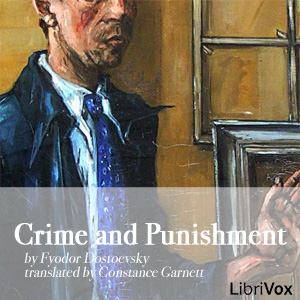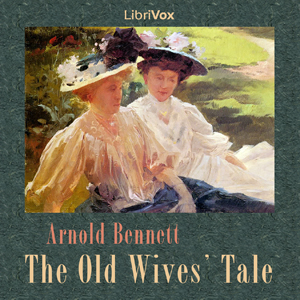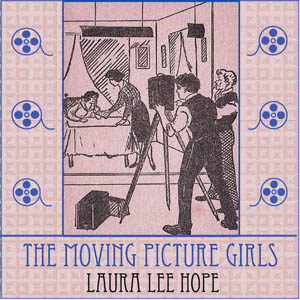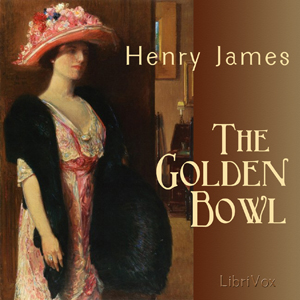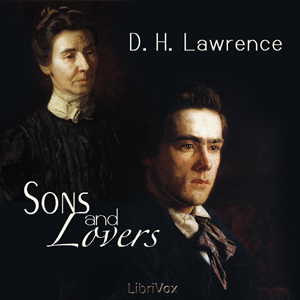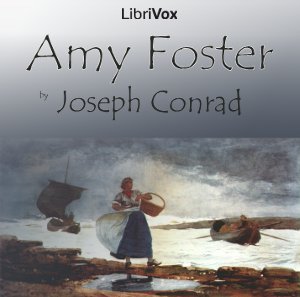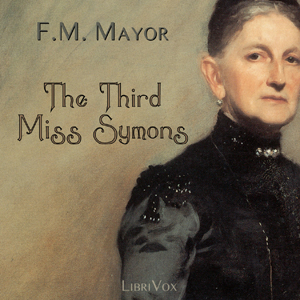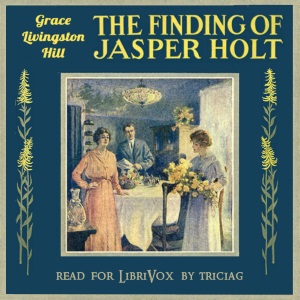A Girl of the Limberlost, a novel written by the American writer and naturalist Gene Stratton-Porter, was first published in August, 1909. The story takes place in Indiana, in and around the Limberlost Swamp, during the early 20th century. (Summary from Wikipedia)
25 episodes
In der Erzählung “Auf der Galerie” beschreibt Franz Kafka in zwei komplett gegensätzlichen Perspektiven die Darbietung einer Künstlerin in der Manege eines Zirkus und das Leiden des Galeriebesuchers durch diesen beiden Darbietungen.
1 episodes
The story of a plucky, optimistic newsboy, Michael O’Halloran, who has been orphaned from a young age and asks nothing of the world but to “Be Square!” This is a warm and joyous story of how Michael makes life sunnier for those around him, bringing joy to all who know him. (Summary by Mary A.)
20 episodes
Crime and Punishment focuses on the mental anguish and moral dilemmas of Rodion Romanovich Raskolnikov, an impoverished St. Petersburg student who formulates and executes a plan to kill a hated, unscrupulous pawnbroker for her money, thereby solving his financial problems and at the same time, he argues, ridding the world of evil. Crime and Punishment is considered by many as the first of Dostoevsky's cycle of great novels, which would culminate with his last completed work, The Brothers Karamazov, shortly before his death. (Summary from Wikipedia)
40 episodes
O Pioneers! tells the story of the Bergsons, a family of Swedish immigrants in the farm country near Hanover, Nebraska, (a fictional town near Glenvil) around the turn of the 20th century. The main character, Alexandra Bergson, inherits the family farmland when her father dies, and she devotes her life to making the farm a viable enterprise at a time when other immigrant families are giving up and leaving the prairie. The novel also concerns two romantic relationships - one between Alexandra and family friend Carl Lindstrom, and another between Alexandra's brother Emil and the married Marie Shabata. (Summary from Wikipedia)
30 episodes
This is James Joyce's first novel, the semi-autobiographical story of a young Irish boy who struggles with family, country, and religion to become an artist and a man. (Summary by Peter Bobbe)
16 episodes
This is a rags to riches romance about an exceedingly beautiful, poor, young girl (Thurley Ruxton) who is mentored by one of New York’s elite hostesses. In order to draw them into her social circle, she allows all the famous and moneyed populous of Gothem to believe that Thurley is the princess Thurvinia hiding in New York to escape an arranged marriage. This causes all manner of high drama and romance with a suitable ending. (Summary by Paul Hansen)
50 episodes
The story is one of only two novels by Wharton to be set in New England. The novel details the sexual awakening of its protagonist, Charity Royall, and shares many plot similarities with Wharton's better known novel, Ethan Frome. Only moderately well-received when originally published, Summer has had a resurgence in critical popularity since the 1960's. (Summary by Wikipedia)
18 episodes
Ein gar nicht düsteres Trauerspiel, in dem nicht nur ein verkrachter Baron, eine schöne Witwe, ein junger Gymnasiast und seine Freundin, die partout nicht mehr als Mädchen gesehen werden will, sowie allerlei bodenständige Ärzte und Kommerzienräte ihren Auftritt haben, sondern auch ein leibhaftiges Phantom. Das Ergebnis ist ein Romanfragment, das nur mit einem lachenden und einem weinenden Auge gelesen werden kann... (Zusammenfassung von Stephanie König)
13 episodes
Yosef Haim Brenner (murdered by Arab terrorists in 1921 at the age of 40) presented in his book "From Here and There" a piercing, soul searching portrayal of the "second aliyah," the dominant immigration into Palestine at the beginning of the twentieth century. The following words have influenced many at the time, and are still thought to represent Brenner's literary "will": "Life is bad, but always secret ... Death is bad. The world is conflicted, but also diverse, and sometimes beautiful. The world is miserable, but can also be wonderful. The nation of Israel, by the rules of logic, has no future. One must, nonetheless, work. So long as you have a soul, there are sublime acts and uplifting moments. Long live Hebrew human labor!" (Summary by Omri Lernau)
19 episodes
The Old Wives' Tale is a novel by Arnold Bennett, first published in 1908. It deals with the lives of two very different sisters, Constance and Sophia Baines, following their stories from their youth, working in their mother's draper's shop, into old age. It is generally regarded as one of Bennett's finest works. It covers a period of about 70 years from roughly 1840 to 1905, and is set in Burslem and Paris. (Summary by Andy)
34 episodes

Il giornalino di Gian Burrasca is a novel sited in Tuscany (Italy). It was written by Vamba (Luigi Bertelli’s pseudonym) in 1907 and published in 1912. The first edition was published on instalments by the newspaper “Il Giornalino della Domenica”, between 1907 and 1908. The protagonist, Giannino Stoppani known as Gian Burrasca, writes the story as a diary. His nickname, given by Giannino’s family because of his restless behaviour, has become proverbial, in Italy, to indicate a terrible boy.
Il giornalino di Gian Burrasca è un romanzo ambientato in Toscana scritto da Vamba, (pseudonimo di Luigi Bertelli) nel 1907 e pubblicato nel 1912. Inizialmente pubblicato a puntate sul “Giornalino della Domenica” tra il 1907 e il 1908, il libro è scritto in forma di diario: il diario di Giannino Stoppani, detto Gian Burrasca. Questo soprannome, che la famiglia gli dà a causa del suo comportamento molto irrequieto, è divenuto proverbiale per indicare un ragazzino indisciplinato. (Summary by Wikipedia)
102 episodes
“Een vertelling van menschen en zeden.”Stork is de dorpsdokter, die van dichtbij de reactie van zijn dorpsgenoten observeert als bekend wordt dat er een zonde heeft plaatsgevonden in de pastorie. (Samenvatting door Anna Simon).
23 episodes
Ruth and Alice DeVere and their father Hosmer struggle to make ends meet in New York City - times are hard, even for a talented actor like Mr. DeVere. Just as he successfully auditions for a new play, an old voice affliction renders him terribly hoarse and he loses the role. Despite voice rest and medical treatment, Mr. DeVere's voice fails to improve, and it is impossible to find theatre work.A friend and neighbour in their apartment building suggests that Mr. DeVere tries acting in the moving pictures (which being silent, would not need him to speak at all) but Mr. DeVere considers that business to be common and cheap. However, when they receive an eviction notice, and local shops refuse to extend credit, Mr. DeVere may have no choice ... and where he goes, his daughters will follow.Summary by Cori Samuel.
25 episodes
The Golden Bowl is a 1904 novel by Henry James. Set in England, this complex, intense study of marriage and adultery completes what some critics have called the "major phase" of James' career. The Golden Bowl explores the tangle of interrelationships between a father and daughter and their respective spouses. The novel focuses deeply and almost exclusively on the consciousness of the central characters, with sometimes obsessive detail but also with powerful insight. (Summary by Wikipedia)
42 episodes
In der Strafkolonie ist eine Erzählung von Franz Kafka, die im Oktober 1914 entstand und 1919 veröffentlicht wurde. Einem Forschungsreisenden wird das Rechtssystem einer Strafkolonie vorgeführt. Es besteht darin, dass jeder Angeklagte unabhängig von seiner Schuld von einem Apparat in minutiösem Ablauf stundenlang gefoltert und dann getötet wird. Den Apparat beschreibt Kafka als überdimensionalen Parlograph in der Funktionsweise eines Phonographen mit vibrierender Metallplatte und Nadel. Dieser Apparat ist der Hauptgegenstand der Erzählung, er repräsentiert die Einheit von Schrift und Tod. (Summary by Wikipedia)
1 episodes

This is a selection of short stories recounting, with gentle satire and tolerant good humour, the small town provincial life at the end of the nineteenth century, based around the six towns in the county of Staffordshire, England, known as the Potteries. Arnold Bennett chose to fictionalize these towns by changing their names and omitting one (Fenton) as he apparently felt that “Five Towns” was more euphonious than “Six Towns”. The real town names which are thinly disguised in the novel are: Hanley, Longton, Burslem and Tunstal, the fifth, Stoke, became “Knype”.
Arnold Bennett (1867-1931) was born in Hanley, the eldest child of a pawnbroker who subsequently became a solicitor. Bennett’s father wished him to become a solicitor too, but he failed his university entrance examination and instead became a solicitor's clerk, at first in his father's office and, from 1889, in London.
He showed early promise as a writer winning a writing competition in a local newspaper as a boy. In London he began to see his writing published in popular magazines and he joined the staff of ‘Woman’ magazine in 1893.
His first novel to be published, A Man from the North, appeared in 1898 and its success allowed him to give up other work to concentrate on writing. His first short story (A Letter Home) was written in 1893 and appears in Tales of the Five Towns. (Summary by Martin Clifton)
13 episodes
A well-to-do French farm family is destroyed by a flood. The story, thrilling to the very end, is told from the point of view of the family's 70-year-old patriarch. The story speaks of the helplessness of mankind in the face of the forces of nature. (Summary by Karen Merline)
2 episodes
Brief Encounter meets Tristan und Isolde - on the Isle of Wight, under a vast sky florid with stars. The consequence is tragic indeed for one of the parties, Siegmund, when he sacrifices family life for a few days’ transcendent rapture. His lover, the self-contained Helena, is strong enough to bear a return to the scruffy suburbs. Redemption of a kind is granted to the deserted wife, Beatrice. But between these robust Lawrentian women Siegmund is cancelled out. His love-death is no cosmic swoon but a sordid exit in an unkempt box-room.
In this very British romance, there is no earthly escape from outworn attachments and life’s deadening routine... (Summary by Martin Geeson)
31 episodes
As the New York Times said in 1903, this lesser-known work by Jerome K. Jerome does not display "the wit of Congreve or even the glittering sort Mr. Jerome employs in some of his other books."
It takes the form of imaginary conversations between the writer and a number of un-named characters at the afternoon tea table. The Woman of the World, the Old Maid, the Girton Girl, the Philosopher and the Minor Poet wax lyrical on subjects like marriage, art, society and politics. Frequently they appear to prefer the sound of their own voice to that of others.
Although I couldn't agree with the NY Times that it is the Baedeker guide to conversation, it is certainly an eye-opening glimpse into this now almost extinct art. The participants are already bemoaning the lack of invigorating conversation in society: "Conversation has become a chorus; or, as a writer wittily expressed it, the pursuit of the obvious to no conclusion." (Summary by Ruth Golding)
6 episodes
Set during WWI in England, The Red Planet is a rich tale about the life in a little English town from the point of view of Major Duncan Meredyth, a disabled veteran of the Boer Wars. As he struggles to keep his life and the lives of those he cares for in harmony, he must also shelter a dark secret regarding one of the village's favorite sons. The Red Planet was the third bestselling novel in the United States for 1917.
(Summary by Miss Stav)
25 episodes
John Linden is a very wealthy man. The people who should inherit his property are his nephew, Curtis Waring, his niece Florence Linden, and his long lost son - if alive. John thinks it would be best if Florence and Curtis were married, and makes it a requirement if Florence wishes to have any of the property. A boy named Dodger was sent to steal one of the wills of John Linden so that Curtis would inherit all the property. But Florence prevents Dodger from stealing, and they become friends… To the shock of her uncle and cousin, she decides to leave her uncle's house with Dodger instead of marrying Curtis. And what then? Would she be able to get used to being poor? And will she be poor for ever? Adrift in New York? (Summary by Stav Nisser)
19 episodes
This intimate portrait of a coal-miner's family fastens on each member in turn: Walter Morel, the collier; Gertrude, his wife; and the children: William, Annie, Arthur, and Paul. When Mrs. Morel begins to be estranged from her husband because of his poor financial sense and his drinking habits, she comes to inhabit the lives of her children - most particularly, her sons. She is determined that they will grow to be something more than men that come home blackened with coal dust every day and roaring with drink every night. As each grows up and moves away, she must release him. But Paul, she holds; they have a bond that defies time and the attractions of young women.
Lawrence originally intended the book's title to be "Paul Morel" and it is on this son - and his lovers - that he spends the bulk of his tale. The strong mother can make a success of her son, but if he cannot learn to leave his mother's apron strings, will he really be a better man than his father? (Summary by Mark Smith)
30 episodes
Classic shortish story by Conrad that relates his self-thought alienation from British society, as a young foreign man survives a shipwreck off the coast of Kent, England only to be shunned by most of the townsfolk. The one exception is the loving, if dull-witted, Miss Foster. (Summary by BellonaTimes)
3 episodes
Based on the author's own life, this book tells the story of "little sister". The youngest of eleven, she is unwanted in the beginning. The brother who loved her most, and whom she loved most in the world, is Laddie. She is almost lonely, and it's hard for her to study, so her comfort is nature. In an unforgettable way, which is funny and sad, little sister tells us her story. (Summary by Stav Nisser)
30 episodes

The Milky Way - F. Tennyson Jesse's first novel - began life as a 1913 magazine serial called The Adventures of Viv. In it, poor-but-plucky Cornish painter/model Vivian Lovel recounts events of her twenty-first year: en route from Penzance to London by steamer, she catches a baby dropped over the side of a sinking ship - and decides to keep it. Penniless, however, she "platonically" pairs up with pan-like fellow passenger Peter Whymperis, an actor and aspiring writer, and together they find work with a fifth-rate repertory troupe. Soon sacked, they nevertheless leave with money enough to buy milk for the baby. They then spend a night locked in a wax museum devoted to notorious murders and later trace a fugitive from justice to his lair. At a costume party, Viv rescues her beautiful friend Chloe from a cruel seducer, by taking her place (and his car). Viv then flits to Cornwall for a stint of modeling at an artists' colony. She's tempted to put down roots, but Peter appears, and they dance away as faun and nymph into the night. Back again in London, a publisher, whose home they invade, commissions Peter to write and Viv to illustrate a travel book about Provence, so they promptly decamp for France. While visiting the romantic locale of famous lovers Aucassin & Nicolete, Viv retells the fable so vividly to a filmmaker they meet that he decides to shoot the movie, with Aucassin played by Peter and Nicolete by - Chloe! Will Viv's faun succumb to the charms of her BFF? Or will her milky way have a honeyed end? The Milky Way is the only novel F. Tennyson Jesse completed before inadvertently touching a whirling airplane propeller with her painting/writing hand, the treatment of which left her with fewer fingers and a lifelong opiate addiction. Subsequently, she turned to crime - writing much about murders such as those that terrified Viv in the wax museum - and her later novels seem just a bit darker, harder, more impersonal and less ingenuous than this jeu d'esprit which was her first. (Introduction by Grant Hurlock)
37 episodes
Il fu Mattia Pascal è un celebre romanzo di Luigi Pirandello che apparve dapprima a puntate sulla rivista "Nuova Antologia" nel 1904 e pubblicato, nello stesso anno, in volume. Fu il primo grande successo di Pirandello, scritto in un momento difficile della sua vita... (Wikipedia)
18 episodes
Miss Mayor tells this story with singular skill, more by contrast than by drama, bringing her chief character into relief against her world, as it passes in swift procession. Her tale is in a form becoming common among our best writers; it is compressed into a space about a third as long as the ordinary novel, yet form and manner are so closely suited that all is told and nothing seems slightly done, or worked with too rapid a hand. (Summary from the Preface by John Masefield)
5 episodes
Botchan is the story of a young math teacher from Tokyo whose first assignment takes him to a middle school in the country side. His arrival there is not very lucky: The pupils are bound to test his perseverance and cheerily comment every one of his perceived missteps. In the teacher's room, he soon finds himself in the middle of an intrigue between the jovial "Porcupine" and the fat "Hubbard Squash" on one side, and the effeminate "Red Shirt" and his follower "Clown" on the other. Will Botchan choose the right side in the end?
Botchan - with morality as the main theme - is one of the most popular novels in Japan. Sōseki Natsume bases the story on his own experiences as teacher in Matsuyama, his first assignment away from Tokyo. (Summary by Availle)
12 episodes
Jasper Holt was a neglected child. As a consequence, he grew up to be angry and independent - generally good, but not caring what others thought of him... until he met Jean Grayson, the first truly good person he ever met. He knew she was out of reach to him due to his bad reputation. Her very existence and belief in him is motivation for him to change. - Summary by TriciaG
22 episodes

Triste Fim de Policarpo Quaresma é um romance do pré-modernismo brasileiro e considerado por alguns o principal representante desse movimento.
Escrito por Lima Barreto, foi levado a público pela primeira vez em folhetins, publicados, entre Agosto e Outubro de 1911, na edição da tarde do Jornal do Commercio do Rio de Janeiro. Em 1915, também no Rio de Janeiro, a obra foi pela primeira vez impressa em livro, em edição do autor.O romance discute principalmente a questão do nacionalismo, mas também fala do abismo existente entre as pessoas idealistas e aquelas que se preocupam apenas com seus interesses e com sua vida comum. Com uma narrativa leve que em alguns pontos chega a ser cômica, mas sempre salpicada de pequenas críticas a vários aspectos da sociedade, a história se torna mais tensa apenas quando o autor analisa a loucura e no seu final, quando são feitas duras críticas ao positivismo e ao presidente Floriano Peixoto (1891-1894).O autor optou por escrever a narrativa numa linguagem próxima à informal falada entre os cariocas. Ela se desenvolve em torno de Policarpo Quaresma, brasileiro extremamente nacionalista, e é dividida em três partes, cada uma contendo cinco capítulos. (Resumo extraído da Wikipedia)
15 episodes
Rain charts the moral disintegration of a missionary attempting to convert a Pacific island prostitute named Sadie Thompson. (Introduction by an excerpt from Wikipedia)
3 episodes

Henry James considered The Ambassadors his best, or perhaps his best-wrought, novel. It plays on the great Jamesian theme of the American abroad, who finds himself in an older, and some would say richer, culture that that of the United States, with its attractions and dangers. Here the protagonist is Lambert Strether, a man in his fifties, editor of a small literary magazine in Woollett, Massachusetts, who arrives in Europe on a mission undertaken at the urging of his patron, Mrs. Newsome, to bring back her son Chadwick. That young man appears to be enjoying his time in Paris rather more than seems good for him, at least to those older and wiser. The novel, however, is perhaps really about Strether's education in this new land, and one of his teachers is the city of Paris -- a real Paris, not an idealized one, but from which Strether has much to learn. Chad Newsome, of course is there too, and so are a scattering of other Americans, his old friend Waymarsh and his new acquaintance Maria Gostrey among them. Had Strether his life to live over again, knowing what he has now learned,. how different would it be? and what are the lessons he takes home with him?
(Introduction by Nicholas Clifford)
37 episodes
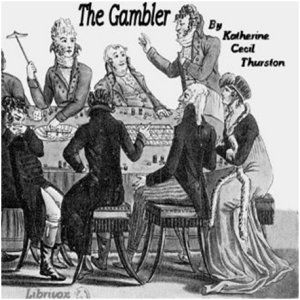
Clodagh, 18 years old, is the eldest daughter of Dennis Asshlin, an Irish gentleman who lives in an area of Ireland called Orristown. Dennis is passionate, proud and indebted to no one. But, Dennis has an obsession with gambling that is leading the family to ruin. When tragedy strikes, Clodagh finds herself in a situation where she must defend the family honor because “no Asshlin is ever obliged to anyone”. She marries a man she does not love who is many times her age and is thrust from adolescence to adulthood literally overnight. Clodagh travels to Europe and mingles with people of society and fashion which through her immaturity, she believes is her right. She finds instead uncertainty, despondency, and deceit. Her emotions are constantly in battle with reality as she discovers her society acquaintances are not the “friends” she believes them to be. During her visit to Europe, Clodagh discovers that she too is burdened with the Asshlin curse for gambling which eventually leads to more heartbreak. A chance encounter seems to change her life and she returns to Ireland, only once again to be thwarted by the Asshlin curse. A surprise and tense ending is in store for the listener. (Introduction by Tom Weiss)
15 episodes
A funny and touching account of the imaginative Mr. Polly who, bored and trapped in his conventional life, makes a U-turn –- and changes everything.H.G. Wells’ early life as the son of a semi-insolvent shopkeeper and as a draper’s apprentice fueled his novels of the lower middle class: The Wheels of Chance (1896), Kipps (1905), and The History of Mr. Polly (1910). These works evoke the desperation of apprentices, clerks, and small traders in their monotonous toil behind shop counters. And, like Mr. Polly, his protagonists make a break from their mundane lives with more or less success.H. G. Wells (1866-1946) was a prolific writer in history, general and science fiction, and politics. He was a lifelong socialist. (Summary by Adrian Praetzellis)
23 episodes
This 1918 book consists of five short stories or novelettes by Galsworthy. They are The First and Last (1914), A Stoic, The Apple Tree (1916), The Juryman, Indian Summer of a Forsyte (1918) This last became part of the trilogy The Forsyte Saga. (Introduction by David Wales)
18 episodes

Selma Lagerlöf was born in Vaermland, Sweden, in 1858 and enjoyed a long and very successful career as a writer, receiving the Nobel-Prize in Literature in 1909. She died in Vaermland in 1940. The Emperor of Portugallia was first Published 1914 in Sweden, and 1916 in English, translated by Velma Swanston Howard. The Story i set in Vaermland around 1860 or 1870. In the centre is Jan of Ruffluck Croft. He loves his daughter more than anything, but when she moves to Stockholm and never sends a word home about her doings, he sinks into a dream-world where she is a noble Empress of Portugallia. And he believes himself to be Emperor too. His whole world and all his thoughts are dominated by the thoughts of her return and what will happen then. In the role of Emperor in the poor forest country where he lives he can question the social hierarchies around him, and dressed in his Royal regalia he sits in the frontbench in the Church, and he takes the place of honour at Parties etc. After 15 years his daughter returns home and is shocked to see what a mad clown her father has become and .... (Summary by Lars Rolander)
26 episodes

Richard Hardy, a member of the British gentry, tries to resolve problems in his marriage as he travels with a psychiatrist. The book is to a great extent autobiographical. H. G. had read some brillliantly composed articles by a writer who wrote under the name Rebecca West. In one piece she called H. G. "pseudo-scientific." He contacted her and asked what she meant. When they met for lunch, it was the beginning of a very intense and volatile relationship. Soon she was pregnant, so he divided his time between her and his wife Jane with their two sons. After World War I, Rebecca became more demanding. She wanted him to divorce Jane. Finally, in 1923 Wells told Rebecca she should either get serious about her writing or break off their relationship. The criticism stung her. After a speaking tour in the U.S., she returned newly independent, and the two went their separate ways. In this novel H. G. based the character Martin on Rebecca, who both mesmerized and repelled him. (Summary by Bill Boerst)
22 episodes

Liliecrona's Home was published in Sweden 1911, translated into English by Anna Harwell and published in London in 1913. The story is set in the same surroundings in the district of Värmland which Lagerlöf knew so well and used in many of her books.At the bottom of the dried out Svartsjö lake (Black Lake) there lies the Lövdala Parsonage with its stables and outhouses. There resides the goodhearted, widowed, Pastor Lyselius and his beautiful daughter. Here one day, arrives his new wife, who turns out to be a wicked stepmother. She tempts with her cooking and other allurements, but soon shows her real self. She torments her servants and especially the parson's daughter, mamsell Maia Lisa. We follow mamsell Maia Lisa through torments and sufferings where she gets ever new and harder burdens to carry on her weak shoulders. But by her side in all weathers stands the cleareyed Little Maid, never afraid to say what she thinks or to defend justice. It is hard times when the stepmother is allowed to rule at Lövdala. Even the Parson abandons his nice personality and becomes a marionette who turns against those who he most loves. But changes will come in the end. (Summary by Lars Rolander adapted from Wikipedia-Sweden)
17 episodes
This story is about three people, two men and a woman. Jimmy, selfish and deceitful, who has shamelessly lied to, cheated, and used his dear friend Dannie for years. His wife Mary, who loves another. And finally Dannie himself, the patient, kind, loving and thoughtful friend of both Jimmie and Mary. He would do anything for them, but what will he do when he find out Jimmy's terrible secret? This wonderful book is full of feeling, love, sadness, and friendship. It will will make you smile, cry, and, at times, laugh. Don't miss this delightful story. Summary by fiddlesticks.
11 episodes
The Silver Horde , is set in Kalvik, a fictionalized community in Bristol Bay, Alaska, and tells the story of a down on his luck gold miner who discovers a greater wealth in Alaska's run of salmon (silver horde) and decides to open a cannery. To accomplish this he must overcome the relentless opposition of the "salmon trust," a fictionalized Alaska Packers' Association, which undercuts his financing, sabotages his equipment, incites a longshoremen's riot and bribes his fishermen to quit. The story line includes a love interest as the protagonist is forced to choose between his fiance, a spoiled banker's daughter, and an earnest roadhouse operator, a woman of "questionable virtue." (Summary by Wikipedia)
27 episodes
The hero is Mr Priam Farll, a painter of considerable ability. He is, however, extremely shy – so shy that when his valet, Henry Leek, dies suddenly, the doctor believes the dead man to be Priam Farll and the live man the valet. The artist does not try to disabuse him. After the funeral (in Westminster Abbey), Priam Farll marries a widow and lives a happy life until the loss of his wife’s money means he has to take up painting again. A connoisseur of art recognises his style but thinks the paintings are by an imposter. He makes a fortune by buying his works through a small dealer and selling them in America as genuine. Meanwhile Priam Farll refuses through his obstinate shyness to prove his own identity. (Summary by Simon Evers)
12 episodes

"When, Mr. President, a man, however eminent in other pursuits and whatever claims he may have to public confidence, becomes a member of this body, he has much to learn and much to endure. Little does he know of what he will have to encounter. He may be well read in public affairs, but he is unaware of the difficulties which must attend and embarrass every effort to render what he may know available and useful. He may be upright in purpose and strong in the belief of his own integrity, but he cannot even dream of the ordeal to which he cannot fail to be exposed; of how much courage he must possess to resist the temptations which must daily beset him; of that sensitive shrinking from undeserved censure which he must learn to control; of the ever recurring contest between a natural desire for public approbation and a sense of public duty; of the load of injustice he must be content to bear even from those who should be his friends; the imputations on his motives; the sneers and sarcasms of ignorance and malice; all the manifold injuries which partisan or private malignity, disappointed of its object, may shower upon his unprotected head. All this, if he would retain his integrity, he must learn to ear unmoved and walk steadily onward in the path of public duty, sustained only by the reflection that time may do him justice; or if not, that his individual hopes and aspirations and even his name among men should be of little account to him when weighed in the balance of a people of whose destiny he is a constituted guardian and defender." —WILLIAM PITT FESSENDEN Miss Betty Madison embarks on an adventure in Washington and has much to learn before she can enjoy the triumph of success. (Summary from Foreward )
66 episodes
This is the story of a mild-mannered civil servant, Mr. Golyadkin, who begins to see his "doppelganger" appearing in his life (at work, in society, etc). This "double" has all the qualities that the protagonist lacks. His "double" bullies and persecutes him, slowly taking his place in the world. As the story progresses what could have been a true "double" is revealed to the reader as being Mr. Golyadkin's own mind splitting from reality. It is a haunting and tragic tale. (Summary by Greg Giordano)
13 episodes

Perhaps the most commercially successful Hollywood novel of the 1920s, Rupert Hughes' Souls for Sale is a direct response to contemporaneous charges of the film industry's moral laxities and predilections toward vice. Remember "Mem" Steddon, the pious and steadfast daughter of a religious firebrand who preaches about the sins of Hollywood, is forced to migrate to the west coast after discovering that she's become pregnant out of wedlock. On her journey, Mem runs into the inhabitants of a movie colony and soon befriends many of these delightful (if somewhat peculiar) "film folk." She finds temporary employment as a film extra and soon develops aspirations to become a star herself. But Mem soon discovers that Hollywood is a far different place than she had originally imagined and that the road to film stardom is not straightforward or easy to navigate. This novel was the basis for the popular 1923 film adaptation, which starred an up-and-coming Eleanor Boardman and was directed by Rupert Hughes himself. (Summary by ChuckW )
61 episodes
Vicar and his two daughters move to a small, quiet country village and soon learn that their neighbor in the yellow house holds secrets that will change
everything they thought to be real in their lives. (Summary by Sharon Kilmer)
30 episodes
A gentle reminiscence of a fictional country doctor as the year is drawing to a close. Unlike city doctors, the personal and professional life of a country doctor are closely intertwined. - Summary by Lynne Thompson
15 episodes
物理学校を卒業した坊ちゃんは、松山の中学へ、数学の教師として赴任する。さっそく、同僚にあだ名をつけた、校長は、狸。教頭は、赤シャツ。数学の主任は、山嵐。赤シャツの子分の画学の教師は、野だ。赤シャツに許嫁を奪われかかっている英語の教師は、うらなり。うらなり先生は、九州の延岡へ転勤させられ、それに抗議した、山嵐は、辞表をかかせられてしまった。最後に、山嵐と坊ちゃんは、赤シャツと野だをこてんぱんに殴って、船で、松山を後にする。坊ちゃんは、一ヶ月で、東京に帰り、昔からの下女である「清」と暮らし始める。
Botchan becomes a teacher in Matsuyama after he graduated from a school. He meets lots of trouble. After a month he quits the job and returns to Tokyo. (ekzemplaro)
11 episodes
William – an Englishman is a 1919 novel by Cicely Hamilton. The novel explores the effect of the First World War on a married couple during the rise of Socialism and the Suffragette movement. It was originally published by Skeffington & Son before being reprinted by Persephone Books in 1999. Described as 'a passionate assertion of the futility of war' by The Spectator, William - an Englishman won the first Prix Femina-Vie Heureuse Anglais prize in 1920. - Summary by Wikipedia
18 episodes
Aunt Jane's Nieces On The Ranch sees the reappearance of Louise and Arthur Weldon after the birth of their first child, Jane. The family lives in California and hire a nurse, a local Mexican woman, much to Uncle John's disapproval. Racial tension is explored as a New York woman is brought in to care for the child. Meanwhile, the Mexican nurse, Inez, is certain the ranch is haunted. - Summary by Lynne Thompson
22 episodes



